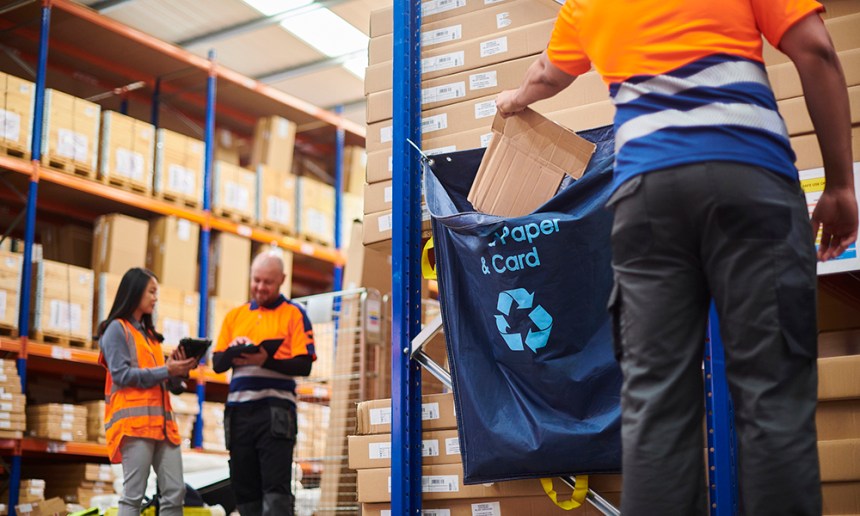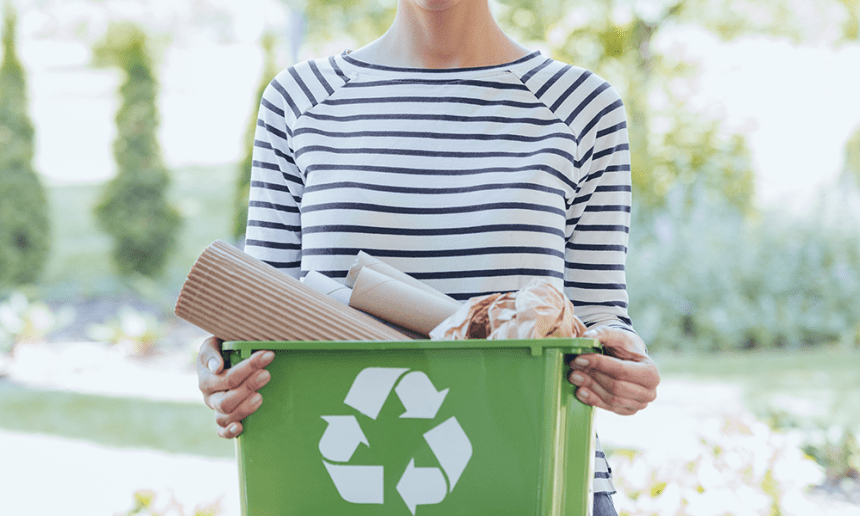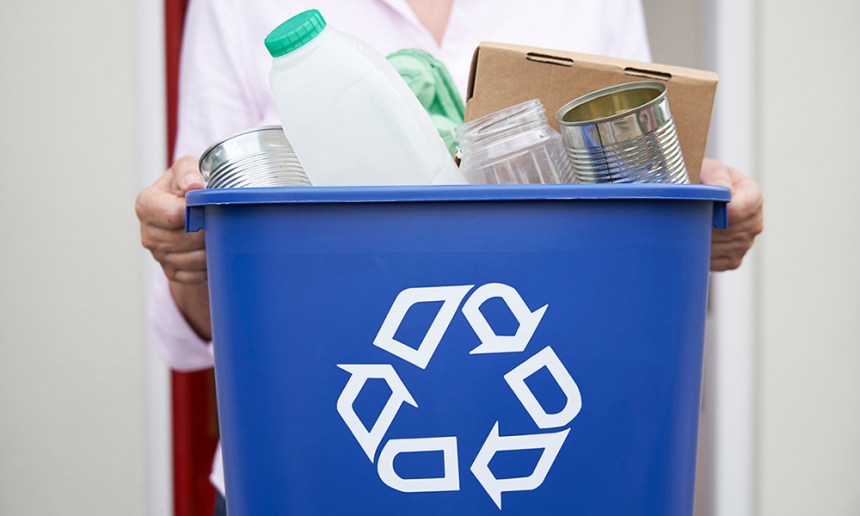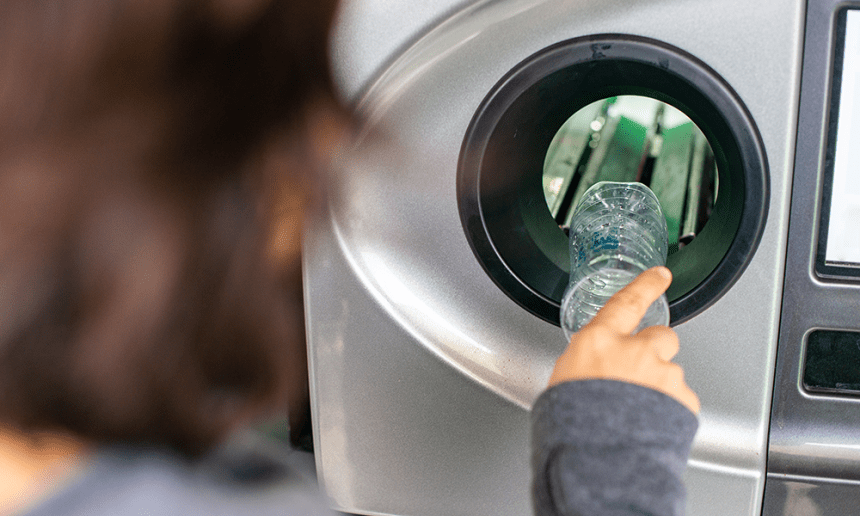Economy
NLWA launches “UK’s first” electrical repair voucher scheme
Repair businesses in three London boroughs are offering 50% off professional repairs as part of the “UK’s first” electrical repair voucher scheme. Local businesses in Hackney, Haringey and Waltham Forest will accept discount vouchers from 1 April, which are being funded by North London Waste Authority (NLWA) and delivered in partnership with The Restart Project, ReLondon and FixFirst. North London residents can apply for a voucher online and will receive a QR code to use at participating high street repair businesses. Customers receive their discount of 50% (up to £50) at payment and the businesses claim back the cost. Fiona Dear, Co-Director at The Restart Project said: “Repair is hugely…
Mary Creagh and Defra to support Festival of Circular Economy
Circular Economy Minister Mary Creagh to give a keynote presentation at the Festival of Circular Economy in May. The Circular Economy Institute and the Chartered Institution of Wastes Management have announced that Creagh will provide an update on the Circular Economy Taskforce. The Taskforce is an independent expert advisory group established in November 2024 to support the government in creating a circular economy strategy for England. Creagh will also join members of the Circular Economy Taskforce for a ‘fireside chat’ to discuss the opportunities and challenges presented by transitioning from traditional commercial and economic models. The session will also explore how the strategy seeks to support businesses in the…
How WRAP brings collaboration to Simpler Recycling reforms
Programme Lead Policy and Insights at WRAP, Chris Mills, explains how the global environmental action non-governmental organisation brings collaborative action to Simpler Recycling reforms. For over 20 years, global environmental action NGO WRAP has played a significant role in bringing together policy makers, NGOs, local governments and businesses to increase recycling rates in the UK. WRAP has done this through evidence-based research, developing key resources and delivering citizen communication campaigns through their Recycle Now and Love Food Hate Waste brands. While major developments in the UK’s resource management have taken place in recent years, the new Simpler Recycling reforms are needed to support the Government’s Circular Economy target to…
CIWM Member Information Note: An overview of requirements for workplaces under the Simpler Recycling regulations
This information note summarises information contained in Defra guidance, WRAP guidance, the relevant UK Statutory Instrument, and Defra’s weekly Circular Economy Newsletters. The information is up to date as of 28 March 2025, however, Defra have acknowledged that additional guidance on certain topics may be useful and they are working with their networks of local authority and waste collector stakeholders to discuss areas for potential additional non-statutory guidance. Any changes to guidance will be communicated to CIWM members in the Weekly Member Insight newsletter. Summary From 31st March 2025, all workplaces in England (businesses and relevant non-domestic premises), except those classified as microbusinesses with less than 10 FTE employees,…
Simpler Recycling comes into force
New Simpler Recycling rules on how workplaces in England sort their recycling and waste have now come into force. From today (Monday 31 March), workplaces with 10 or more employees will need to arrange for the collection of: Dry recyclable materials – including plastic, metal, glass, and paper and card – unless their waste collector collects them together. Food waste Residual (non-recyclable) waste Workplaces can decide on the size of their containers and the frequency of collections based on the volume of waste they produce. The measures are part of the UK Government’s Simpler Recycling policy, formerly Consistency in Recycling, which it calls “integral” to its commitment to move…
Industry reacts to Environment Secretary’s circular economy speech
Industry has reacted to the Environment Secretary’s speech on how the UK Government will support the nation’s transition to a circular economy. Speaking at the Dock Shed in London, the Environment Secretary Steve Reed set out how the UK Government will provide direction for businesses to plan and “spearhead” the nation’s transition to a circular economy. The government has now confirmed the first five priority sectors that the Taskforce will focus on – textiles, transport, construction, agri-food, and chemicals and plastics. The Department for Environment, Food and Rural Affairs (Defra) said the sectors were chosen after the Taskforce found they had the best potential to generate major economic gains…
Environment Secretary to set out plan for circular economy transition
Environment Secretary Steve Reed will set out how the UK Government will support the nation’s transition to a circular economy in a speech to industry leaders later today. Speaking at the Dock Shed in London, Reed will unveil a new plan to transform the nation’s economy by reducing waste across industry. The Environment Secretary will also set out how the UK Government will provide direction for businesses to plan and “spearhead” the nation’s transition to a circular economy. Industry leaders, including the Chartered Institution of Wastes Management (CIWM), the Food and Drink Federation (FDF), and Jaguar Land Rover, will be in attendance. The Department for Environment, Food & Rural Affairs…
How the EU is building a circular economy into construction
Daniel Hiniesto Muñoz de la Torre, Senior Researcher and Project Manager at ACCIONA Construcción, outlines how a circular revolution is taking place in the construction industry. Across Europe, the built environment remains a key talking point in the circular economy conversation. From carbon emissions and energy consumption to waste material, it all contributes to Europe’s impact on climate change. What is the impact of the construction industry? Within the European Union (EU), the construction industry is responsible for close to 40% of total emissions and generates nearly a third of all waste. In 2021, the EU’s circular material use rate – the share of used material resources which came…
Using waste-derived materials to produce sustainable concrete
Designing waste-derived materials to produce sustainable concrete – a potential mine for the future? CIWM Early Careers Ambassador, Dr Sadish Oumabady & Dr Rory Doherty FCIWM spotlight their research project that provides a circular solution to help two of the most polluting industries, agriculture (poor water quality) and construction (carbon emissions). Biochar based concrete The project in Queen’s University Belfast is an industry-led collaboration funded through the Centre for Advanced Sustainable Energy (CASE) with Agri-Food Biosciences Institute (AFBI), United Renewables, Mineral Products Association NI, Mannok Build, Breedon Group, Irish Cements and Northstone NI as research partners. The root cause Agricultural intensification and the subsequent spreading of slurry onto the…
2.8 billion containers recycled as part of Sweden’s DRS in 2024
Over 2.8 billion PET bottles and aluminium cans were returned through the Swedish deposit return system (DRS) in 2024 – a 6% increase compared to the previous year. In 2024, Sweden’s deposit return rate reached 87.6%, just short of the 90% target. On average, every person in Sweden recycled 271 containers last year, according to fresh data from Returpack/Pantamera, the operator of the country’s DRS. In 2024, Sweden’s deposit system prevented over 180,000 metric tonnes of CO₂ emissions, Returpack/Pantamera said. In the DRS, PET bottles and aluminium cans stay in a closed recycling loop, which is crucial for achieving true circularity. Sara Bergendorff, Head of Sustainability and Quality at…































